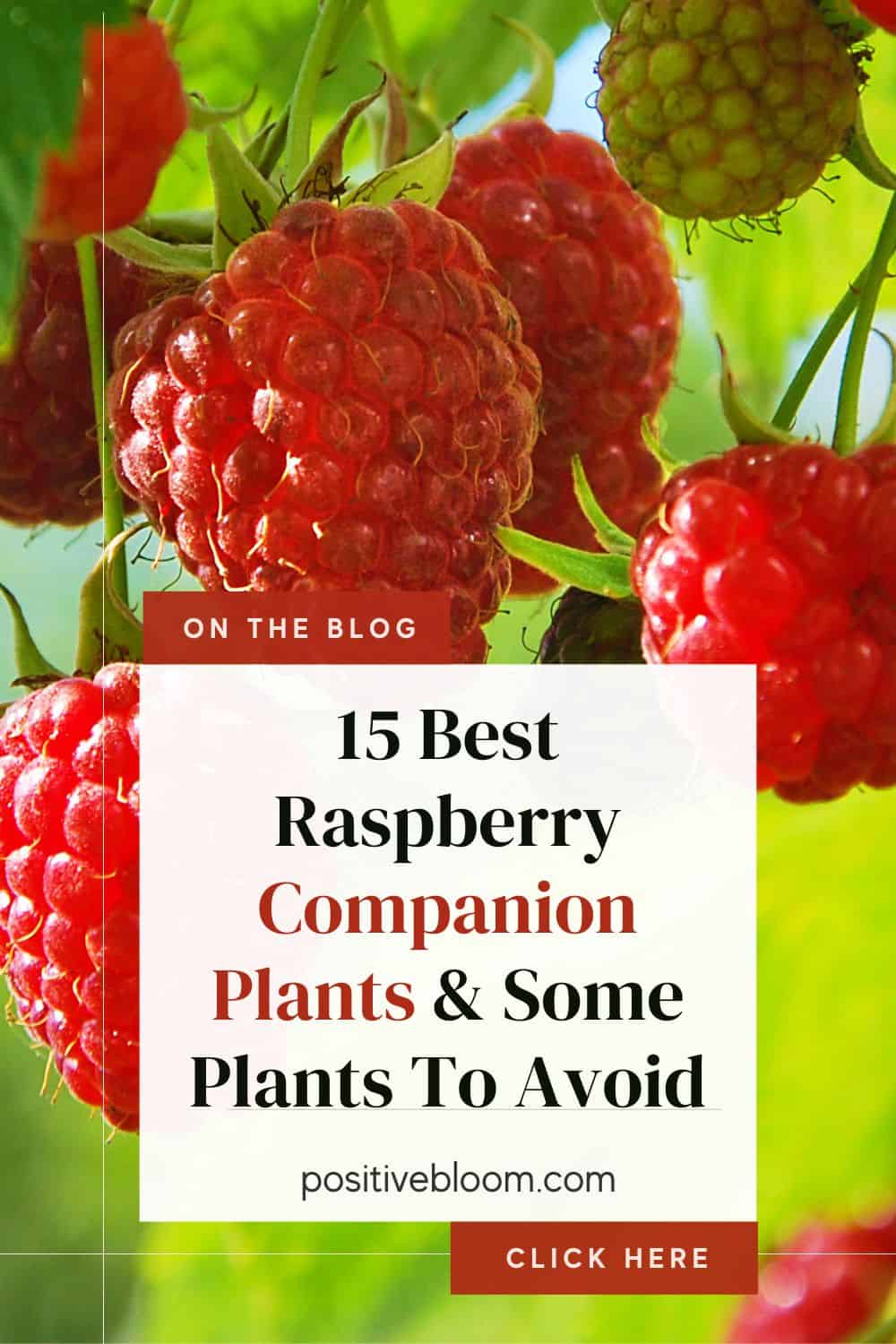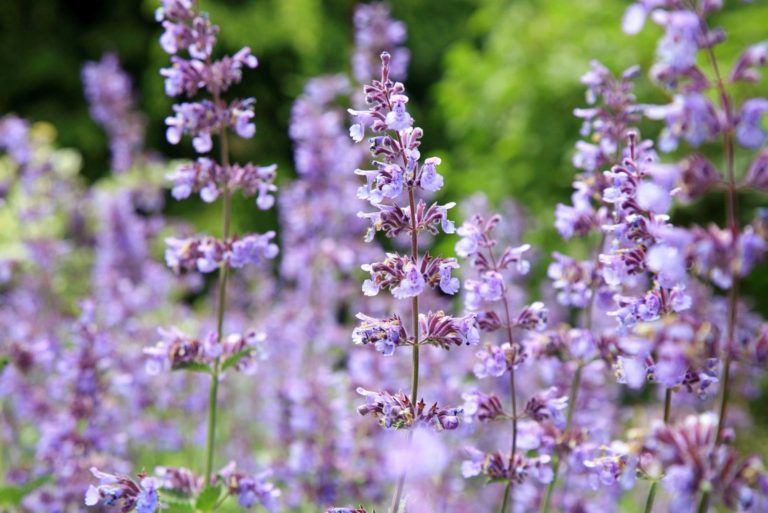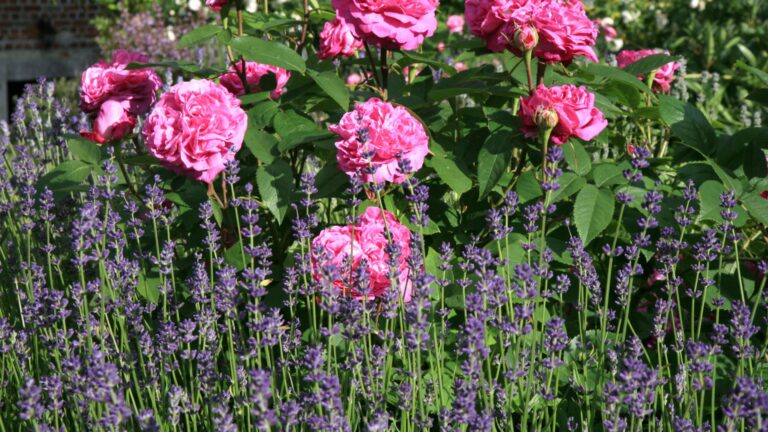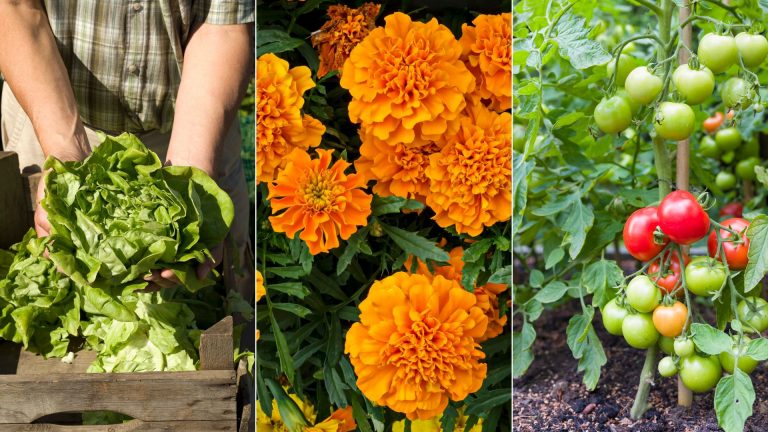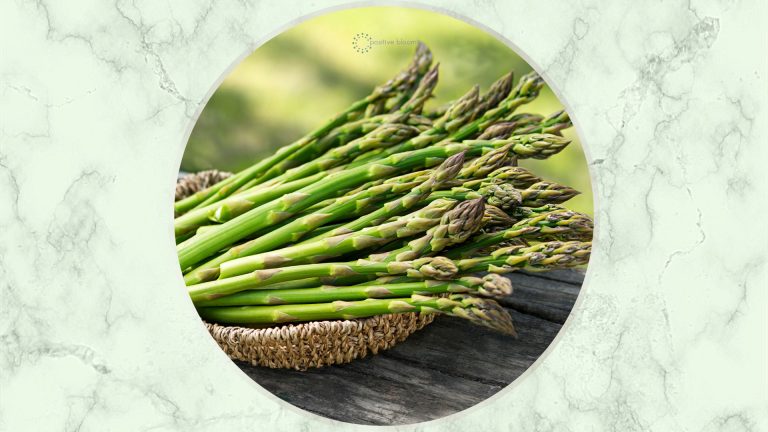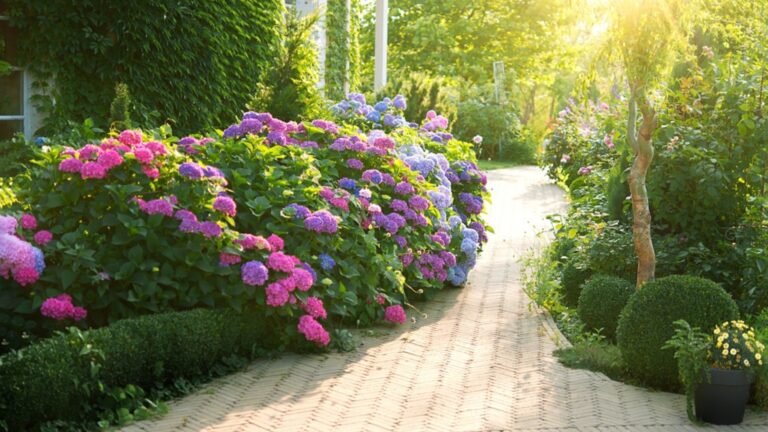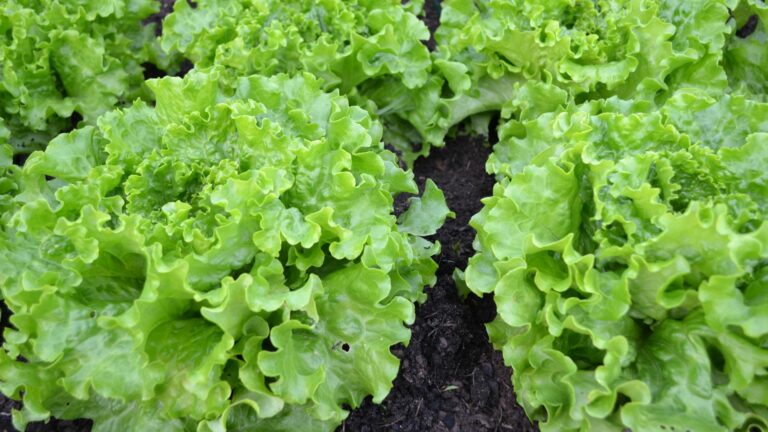15 Best Raspberry Companion Plants & Some Plants To Avoid
Growing your own fruits and vegetables is an excellent way to save some money and have delicious and organic products whenever you want.
There are many varieties to choose from, although raspberries drive a hard bargain. They’re sweet and perfect in cakes, jams, juices, dehydrated decorations, and more!
Growing this fruit vine on its own isn’t that difficult, but there are much better ways. Planting some raspberry companion plants with this berry can make your job a lot easier.
For instance, companion planting can increase the number of beneficial insects in your garden, such as pollinators or ladybugs, and repel pests at the same time.
However, not all plants are suitable growing mates for your raspberries. We’ll mention some companion plants that grow great with this fruit, as well as some you should avoid, so stick around until the end.
15 Fantastic Raspberry Companion Plants
The best raspberry companion plants you can grow near the canes of this fruit vine include alliums, legumes and other cover crops, herbs such as chamomile, tansy, lavender, mint, oregano, and nasturtiums, yarrows, and flowering plants such as marigolds.
And if you want to take it a bit further, you can research the chart for herb companion planting and discover even more varieties.
Raspberries require full sun or partial shade and a nutrient-rich and well-draining, mildly acidic soil to produce the most fruit. Therefore, the best companion plants are those that thrive in similar conditions.
But don’t worry if certain herbs like drier or more moist conditions; you can always grow them in pots near your raspberry bushes!
1. Alliums (Chives, Garlic, Onions)
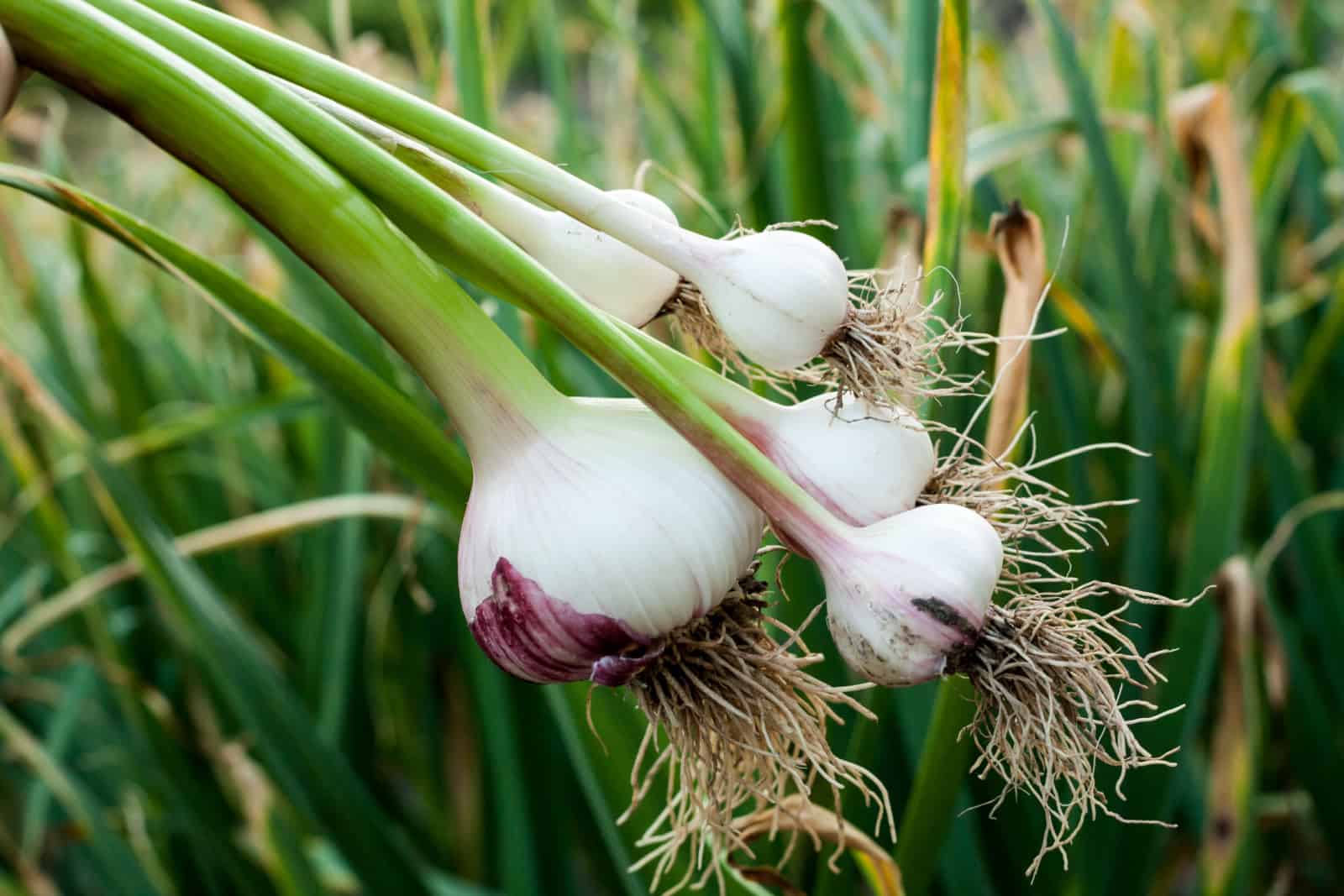
All plants from the allium family, including onions, chives, leeks, and garlic, are great companion plants for raspberries.
The reason growers grow these plants together is because alliums have a strong smell that pests do not like. They contain sulfur which repels slugs, aphids, cabbage worms, and carrot flies, so you can grow them with various plants in your home garden.
Garlic, for instance, is also presumed to improve the taste and growth of raspberries and other plants, so don’t miss out on all these cool benefits.
Finally, alliums are known for their beautiful flowers that can attract many pollinators to your garden and ensure a high raspberry yield.
2. Chamomile
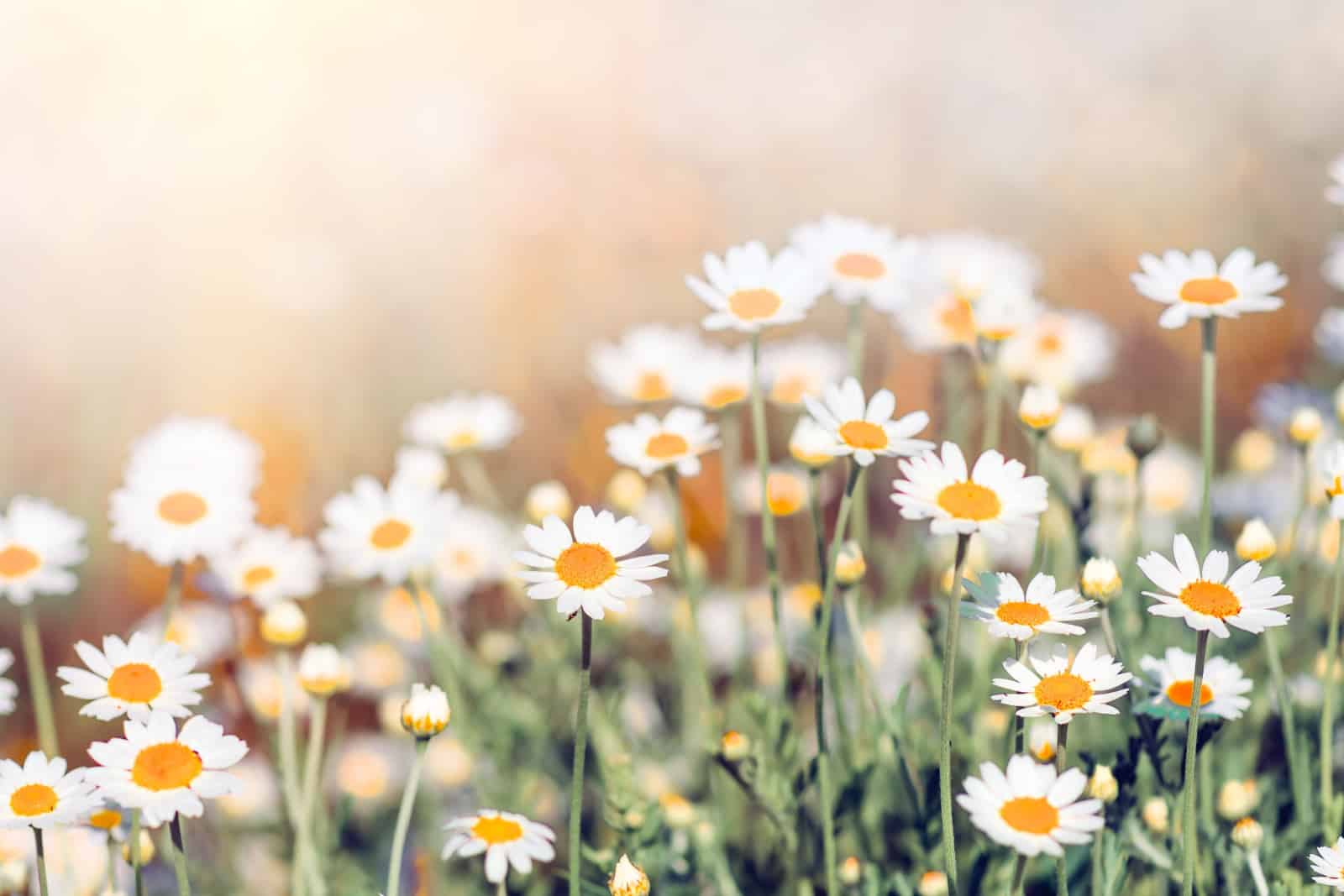
Chamomile is a herb with a strong aroma and can repel pests such as carrot flies, squash bugs, and mosquitoes.
Its fragrance also attracts beneficial insects such as pollinators and ladybugs, which ensure proper pollination and keep your plants safe from spider mites and aphids.
And if you like this herb a lot, you can always find other companion plants for chamomile to grow.
3. Chervil
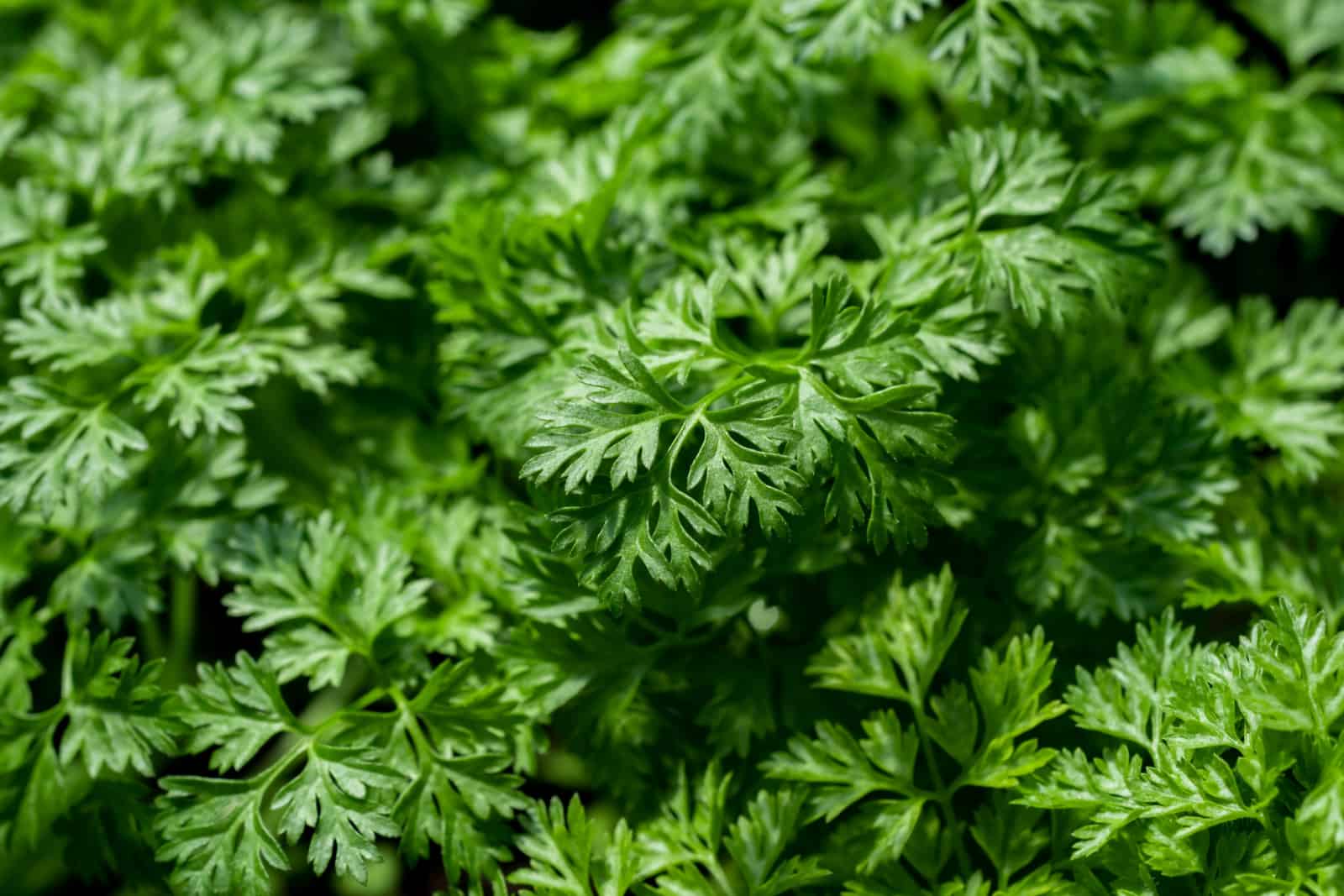
Chervil is a herb that thrives in partial shade, so it will be a good companion plant to your raspberries. You can also use it as a natural pest control because it repels slugs.
You can plant chervil at the bottom of the raspberry trellises to keep the vines’ roots protected from the summer heat.
This herb is used as a mulch substitute because it slows down the evaporation of moisture from the soil.
And to top it all off, it is said that chervil improves the taste of its companions!
4. Comfrey
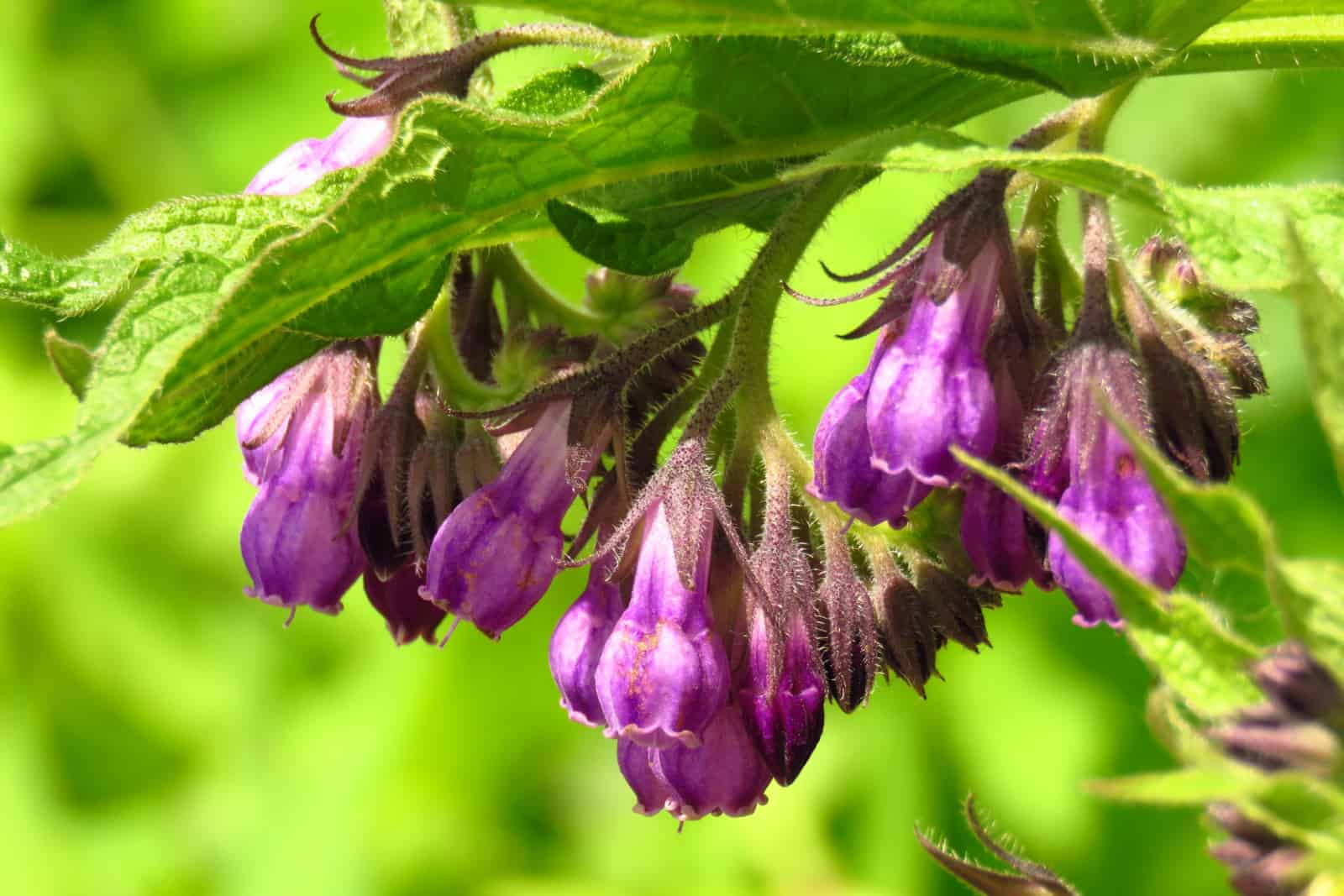
Comfrey has many benefits for raspberries, which is why it’s becoming more and more popular in recent times.
Its beautiful purple flowers attract pollinators, while its roots attract microorganisms necessary for nitrogen fixation.
And aside from ensuring a large yield by inviting helpful insects into your yard and providing your raspberries with valuable nutrients, comfrey can also serve as the mulch.
After it withers, you can leave it around your vegetable garden or raspberry patch to protect your plants’ roots from drying out, deter weed growth, etc.
5. Cover Crops (Legumes)
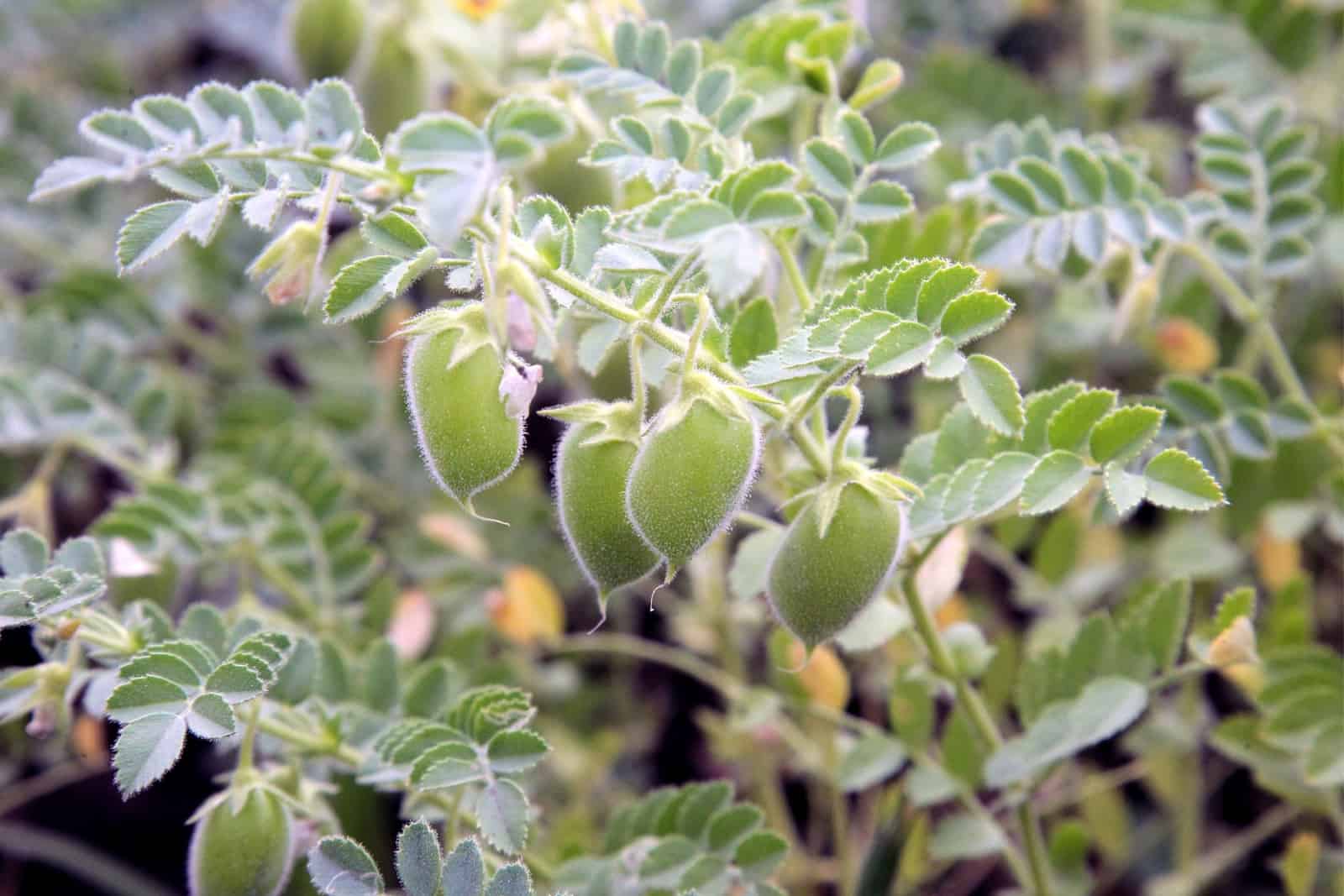
You can use many types of cover crops to protect your raspberries’ roots from heat and enrich the soil with valuable nutrients such as nitrogen.
The most common ones include lentils, alfalfa, chickpeas, peas, clover, and soybeans – basically all legumes.
You can use them as ground cover, to attract pollinators, and to fix nitrogen in the soil.
6. Cucumbers
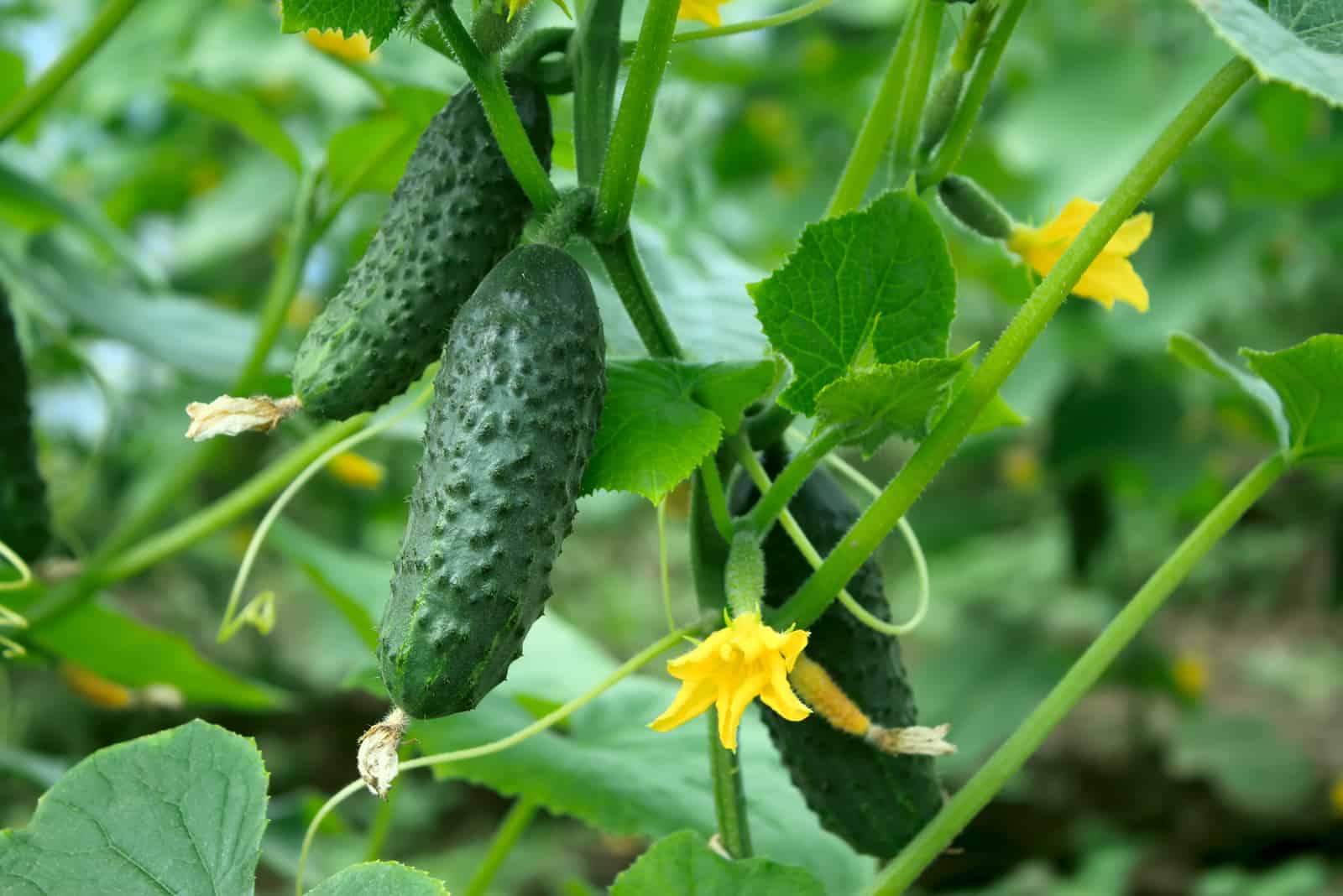
Bush cucumbers are an excellent companion to raspberries because they provide good ground cover during scorching temperatures.
Also, their large yellow flowers can invite certain pollinators into your vegetable garden, which will increase the yield of both raspberries and cucumbers.
7. Lavender
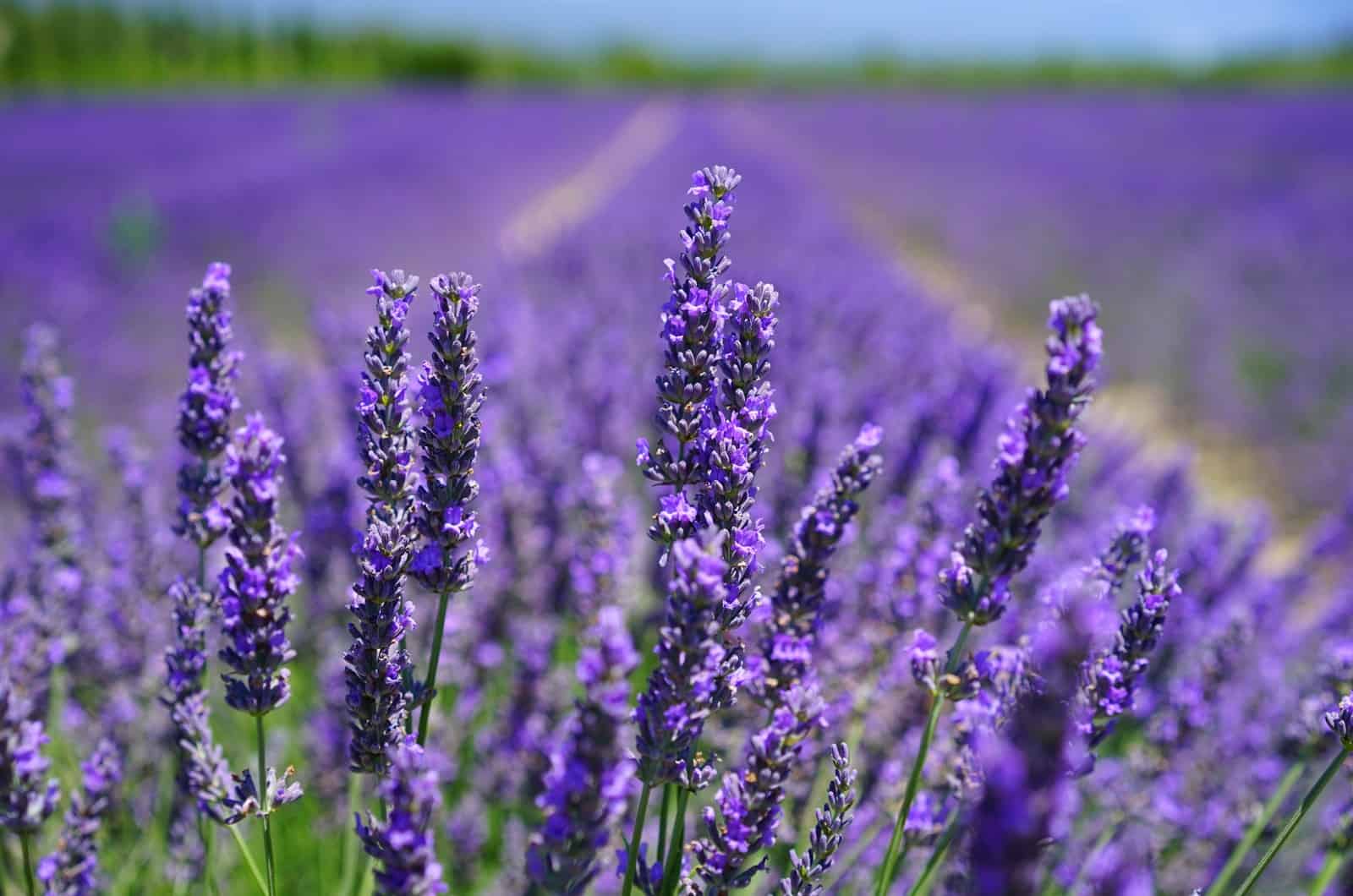
Lavender is one of the best companions to almost all plants because it is deer and rabbit-resistant, it repels pests such as aphids, slugs, and mosquitoes, and attracts beneficial insects to your garden.
Therefore, it is important to know when different lavender varieties bloom to reap all the benefits from it in one growing season.
Finally, lavender prefers poorer and drier soils (unlike raspberries), so you should grow it in a separate container to please both plants.
8. Marigolds
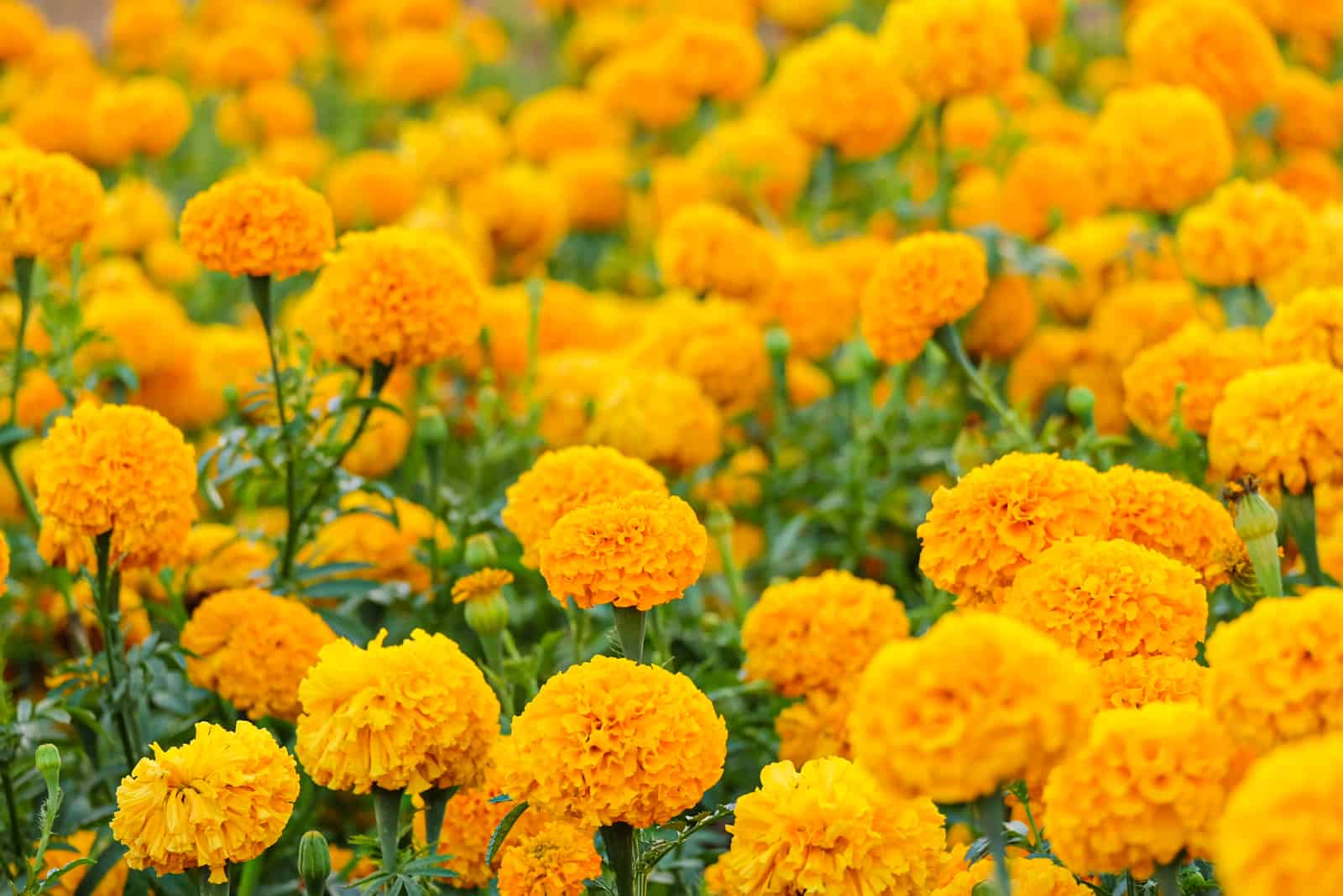
Marigolds aren’t just easy on the eye, they have many benefits that help your other plants thrive.
For instance, they are known for deterring root-knot nematodes, eelworms, potato and Japanese beetles, rabbits, and other pests.
Another benefit of these beautiful flowers is that they attract pollinators to your raspberry patch, which will improve your harvest.
9. Mint
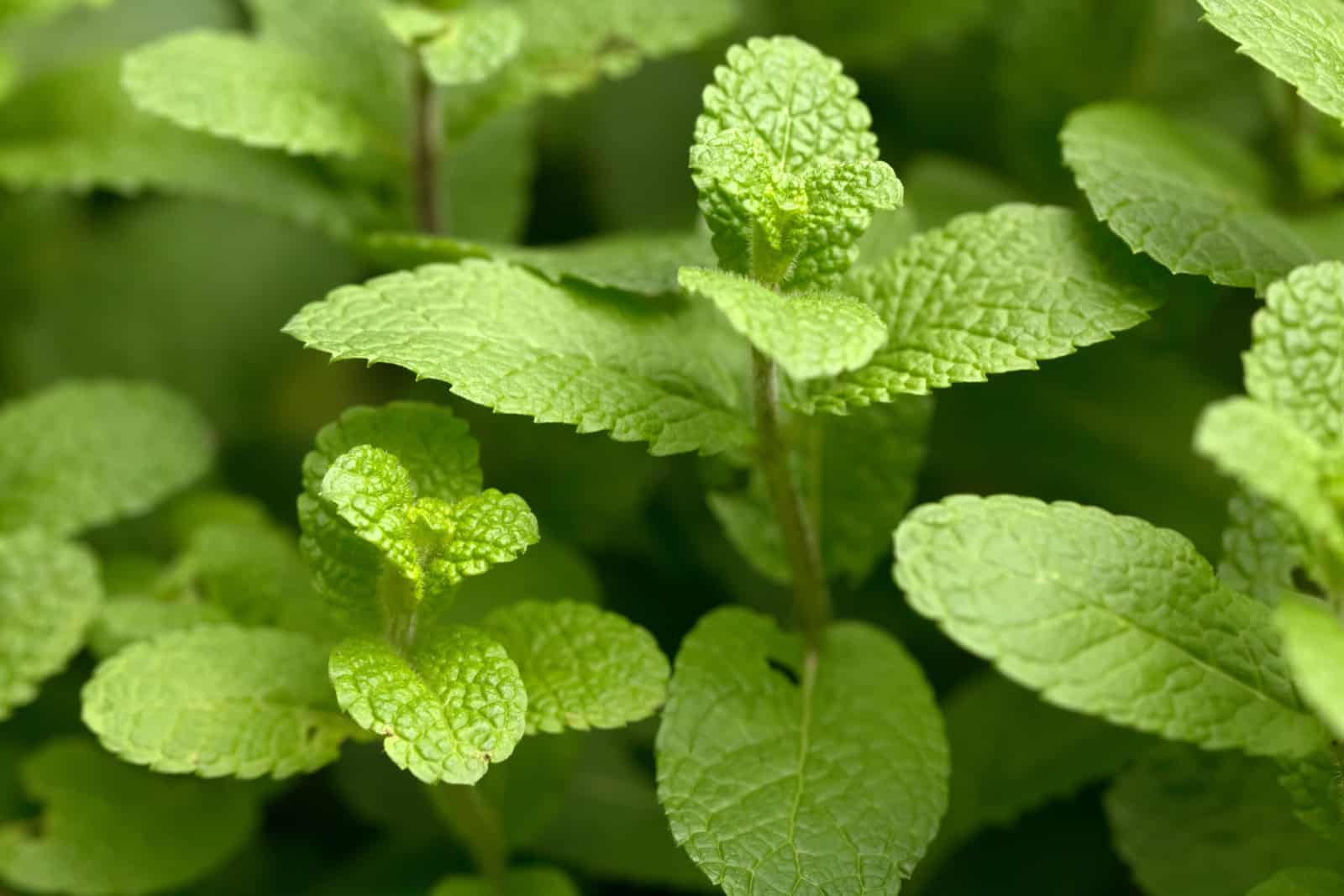
The mint family contains many different herbs, and we’ve even mentioned some of them already (lavender and oregano).
But when we say mint, we usually refer to that one herb with a fantastic aroma. You can grow spearmint to repel aphids or peppermint to deter cabbage moths.
Thankfully, the intense fragrance of mint plants helps to get rid of many unwelcome insects from your garden, so you can plant just about any variety.
Mint can even improve the flavor and growth of its companions, so don’t forget to place a container or two near your raspberries.
This herb can be a bit demanding regarding moisture, but the good news is that there are things that can help you water your mint properly.
10. Nasturtiums
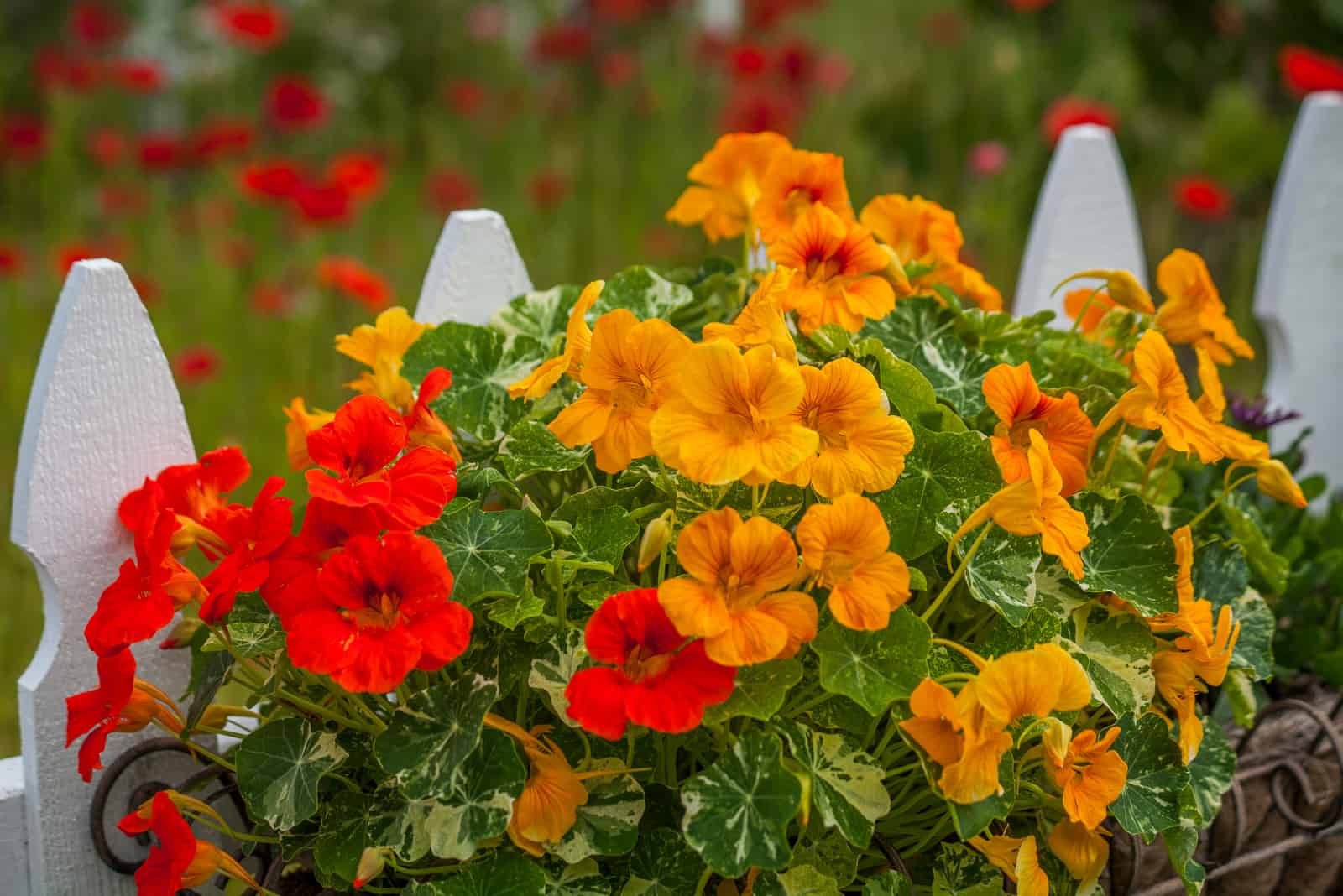
Nasturtiums are good companions to many plants because they deter squash bugs, aphids, whiteflies, etc.
You can even use this flowering herb as a sacrificial crop (if some pests still want to have a taste) and keep your raspberries safe that way.
Finally, many growers swear by their “magic powers” and claim that nasturtiums improve the growth and taste of their companions.
11. Oregano
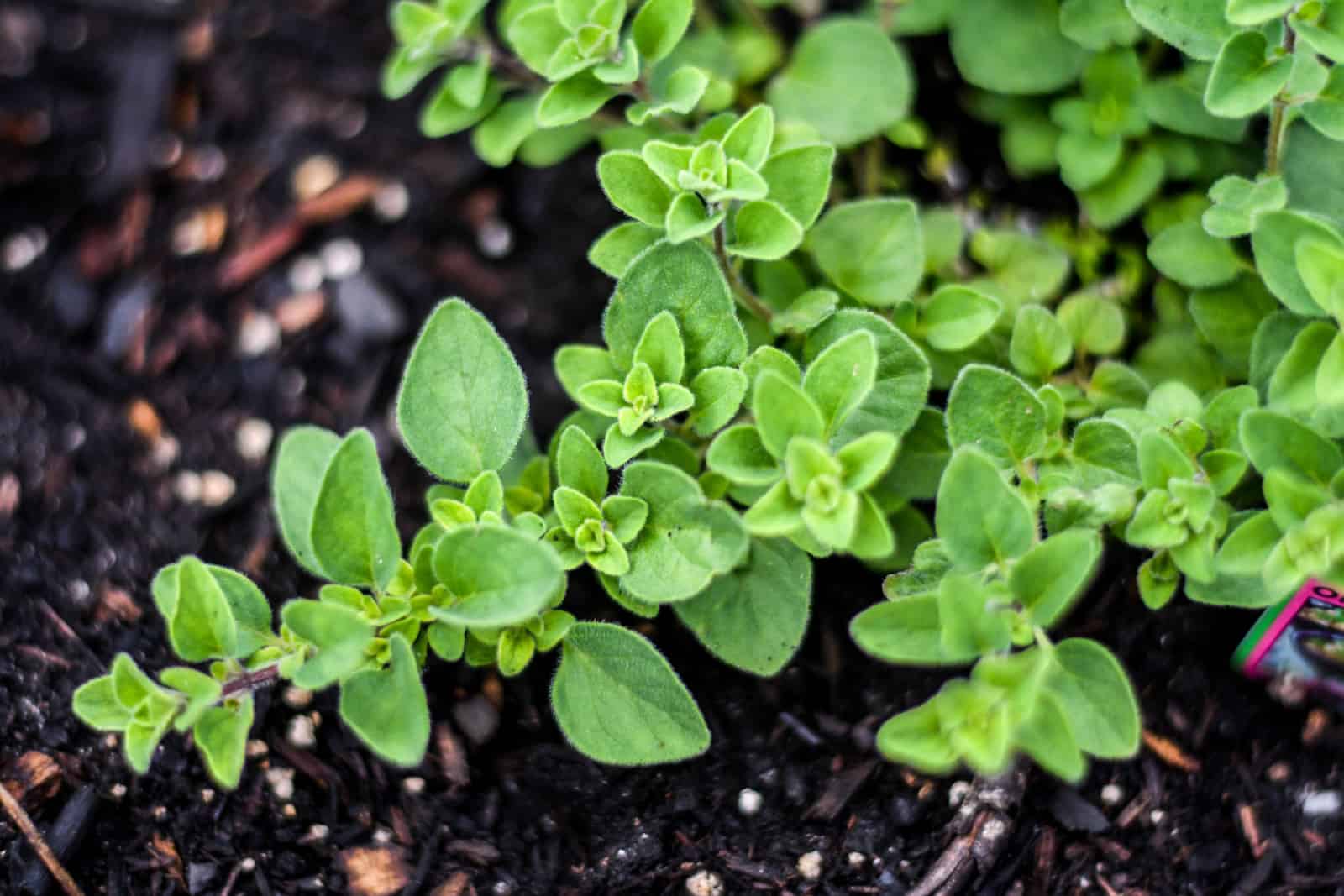
Oregano is another aromatic herb that cucumber beetles, aphids, and squash bugs hate.
Some say that it can even increase the yield, but we believe it’s got more to do with their ability to attract pollinators than some secret superpower.
12. Squash
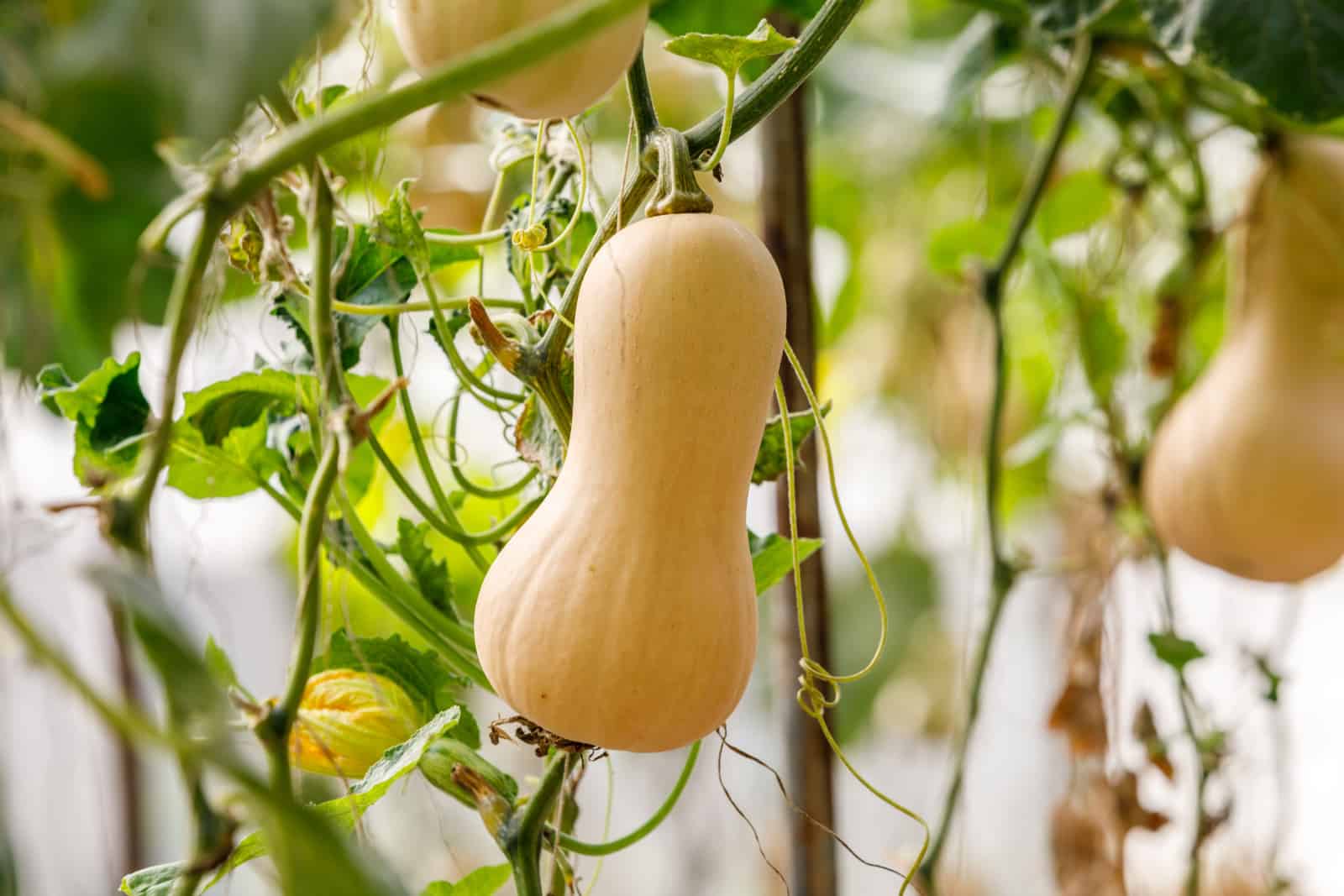
Just like cucumbers, you can use summer squash and pumpkins to protect your raspberry roots from drying out.
The vines of this vegetable can preserve moisture in the soil and reduce evaporation, which helps your raspberries survive the summer heat.
13. Tansy
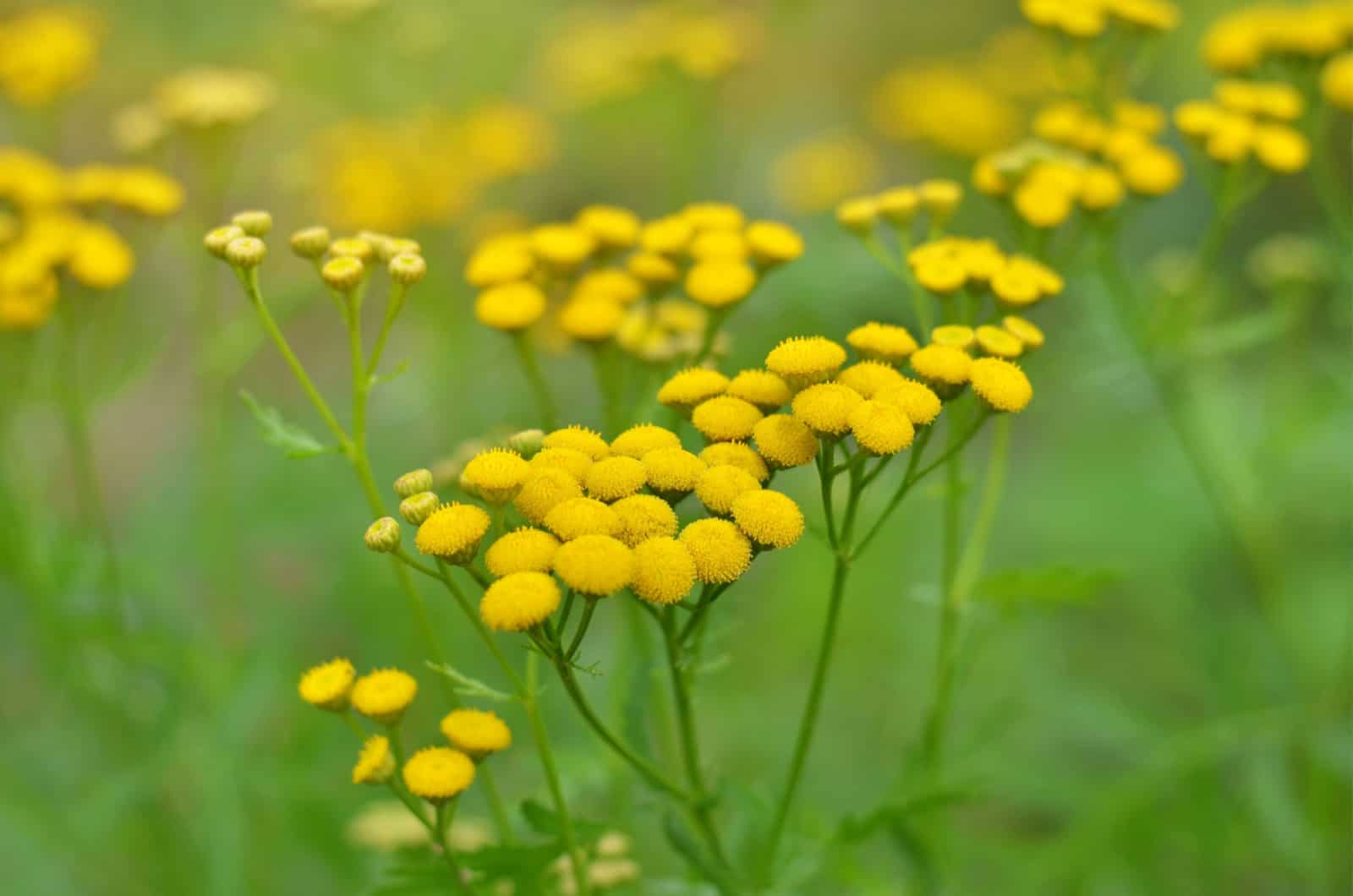
Tansy leaves are poisonous to us, but they also exude a toxic compound called thujone that harmful insects can sense and will avoid.
In addition to deterring pests, tansy can also invite beneficial insects to pollinate your raspberry patch and provide your plants with a quick fix of potassium.
14. Turnips
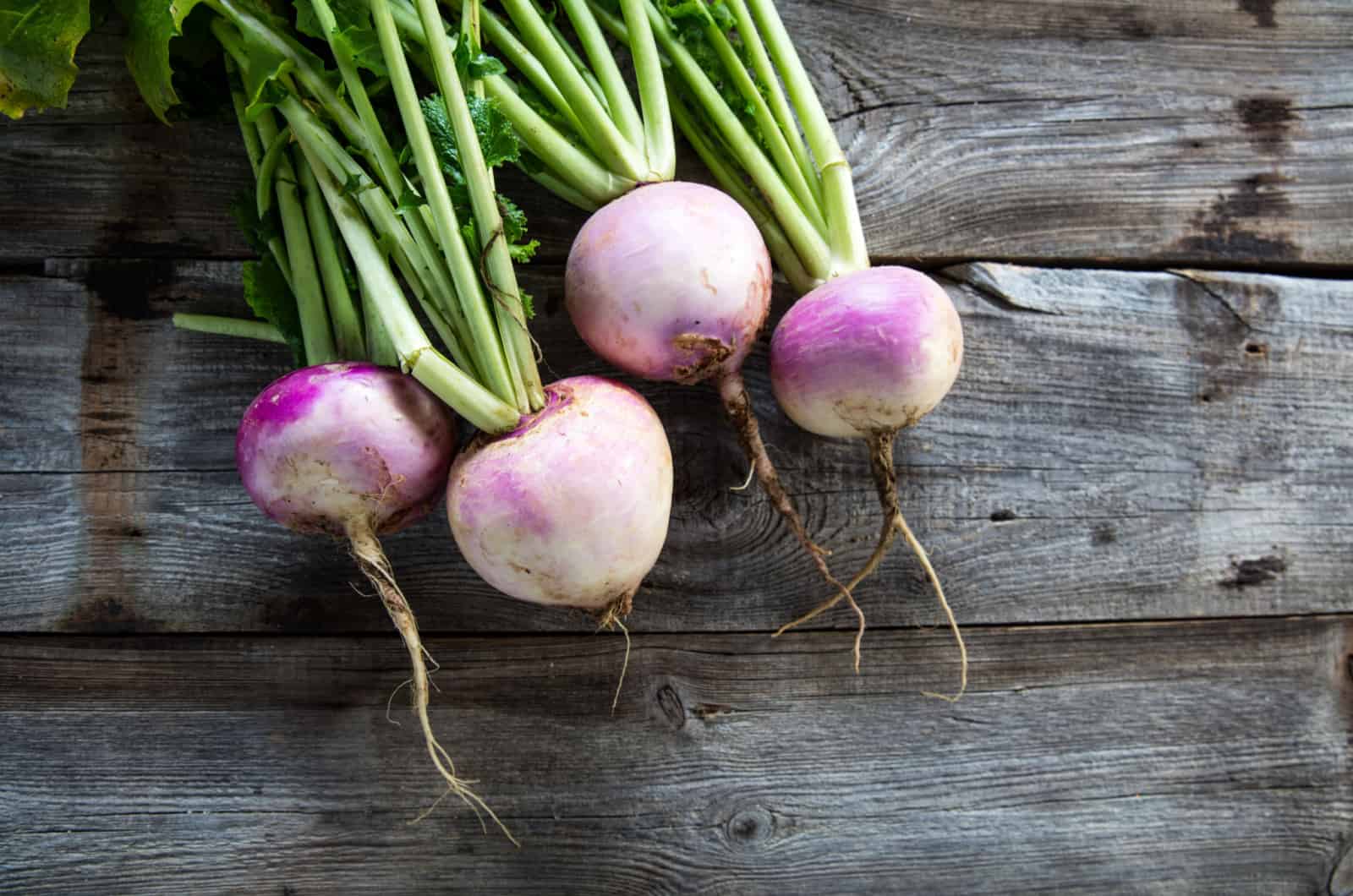
Turnips are one of our favorite raspberry companion plants because they can repel the harlequin beetle.
These insects adore brassicas, such as broccoli, Brussels sprouts, cauliflower, cabbage, and turnips, and will primarily eat these veggies. However, if they’re not around, they will move on to other plants in your vegetable garden, including raspberries.
You can sacrifice your turnips for the benefit of raspberries if you have a heavy outbreak.
15. Yarrow
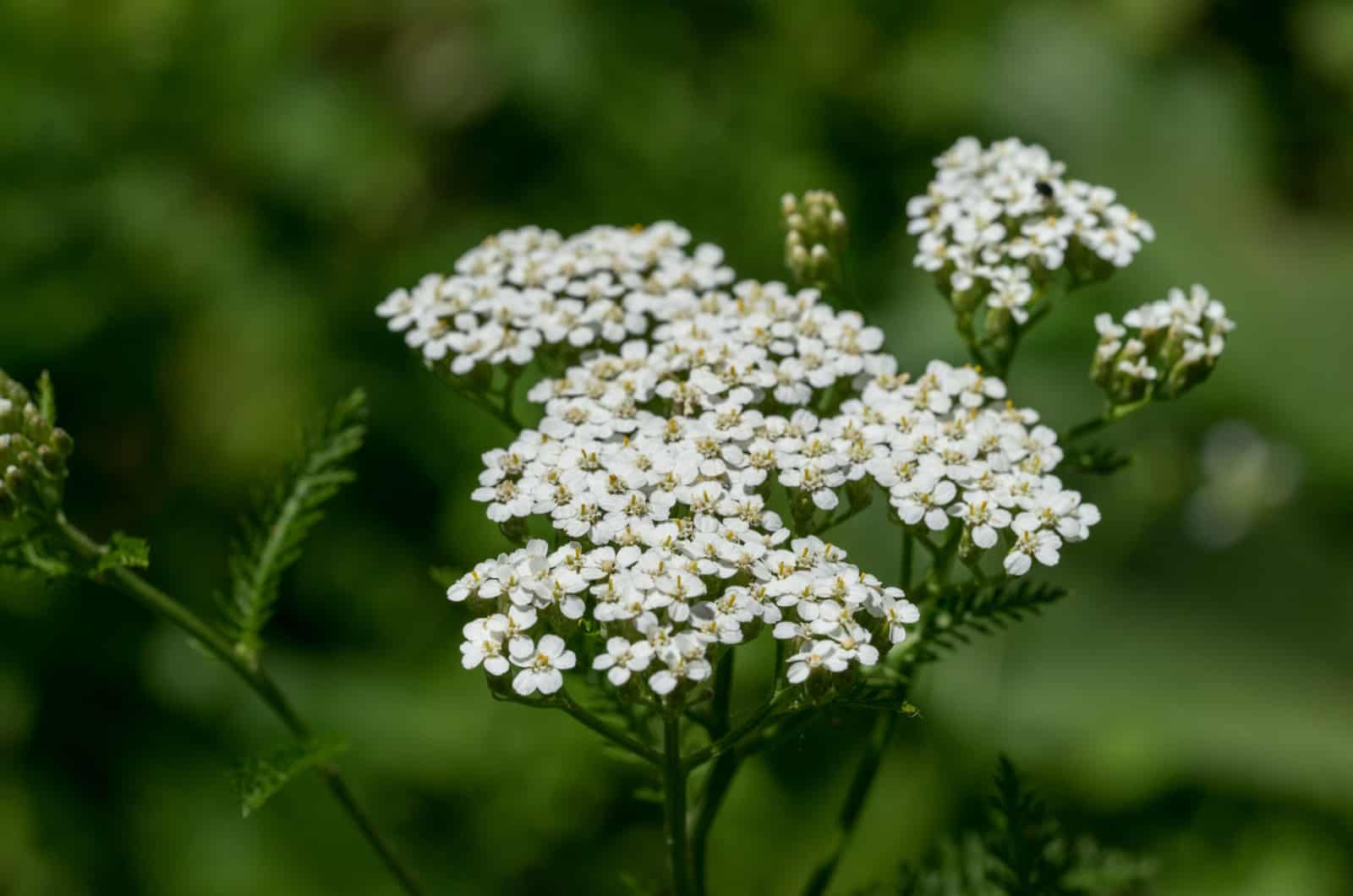
The last plant on our list is yarrow. The main benefits of this herb include deterring pests and inviting pollinators into your garden.
One of the pests this plant deters is the harlequin beetle, although it can help control other infestations since it invites ladybugs, which eat the eggs of all sorts of bugs.
And if you like this herb a lot, you can find some other companion plants for yarrow to grow in your garden.
Plants To Avoid (Not The Best Companion Plants)
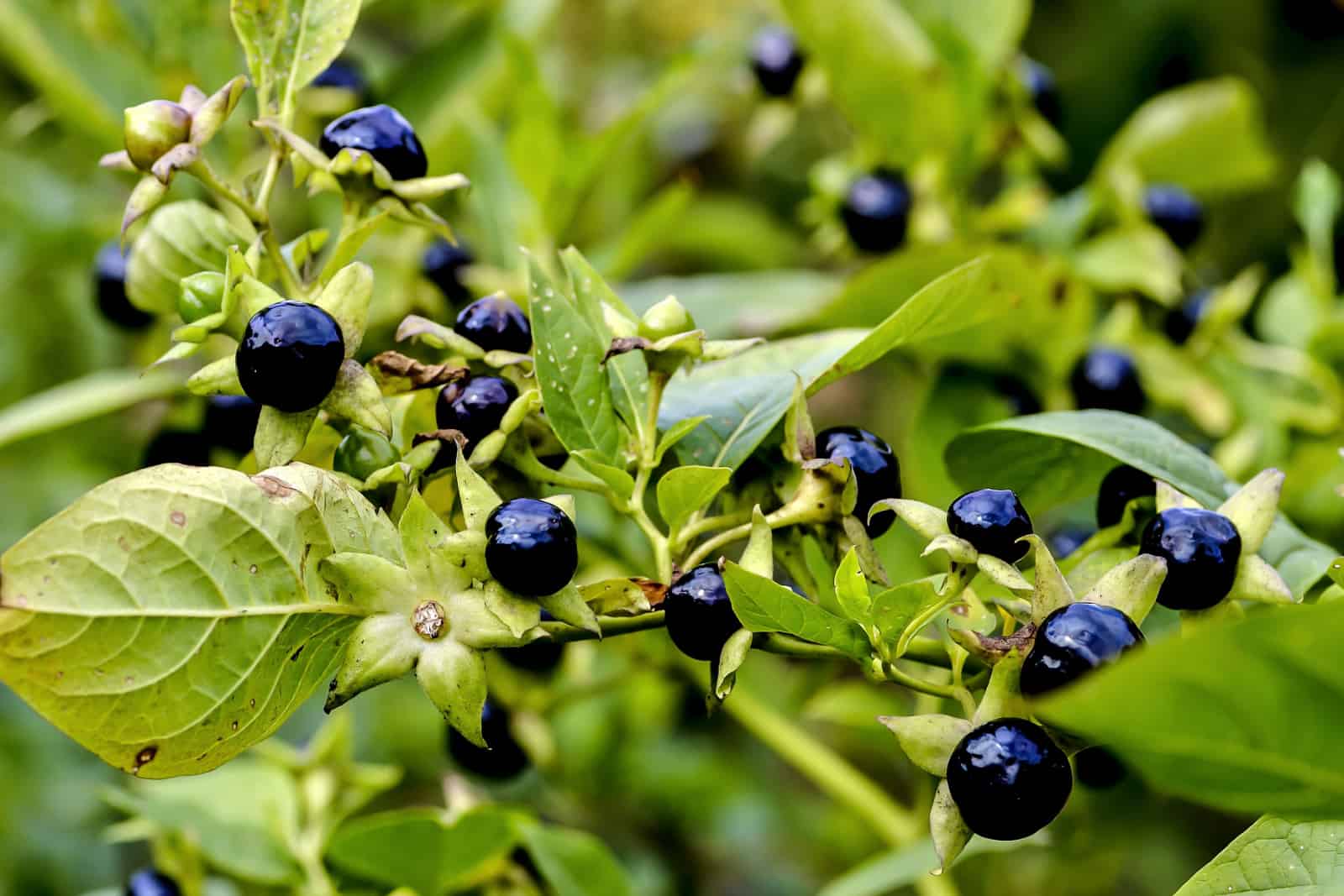
Even though there are many plants that you can grow with raspberries, there are also some that you should avoid planting near these vines because they discourage their growth.
For instance, blackberries, nightshades such as eggplants, tomatoes, potatoes, and peppers, strawberries, gooseberries, boysenberries, and fennel are all varieties you shouldn’t grow near raspberries.
Nightshades can easily get infected with verticillium wilt, which can spread onto your raspberries, so you should keep these two species as far away from each other as possible.
Fennel isn’t a good companion to any plant because it releases a compound that discourages plant growth.
Strawberries are also not great companions because they require more fertile soil and plenty of sun, and the shade of raspberries would hinder their growth. Also, you don’t want to have to watch your every step while pruning or picking raspberries.
You should also avoid planting raspberries near similar plants, such as currants and blackberries, since they can compete for nutrients and increase the risk of fungal diseases.
If you still want to grow them together, you should ensure that the soil is fertile and prune them regularly to increase air circulation.
The Benefits Of Companion Planting
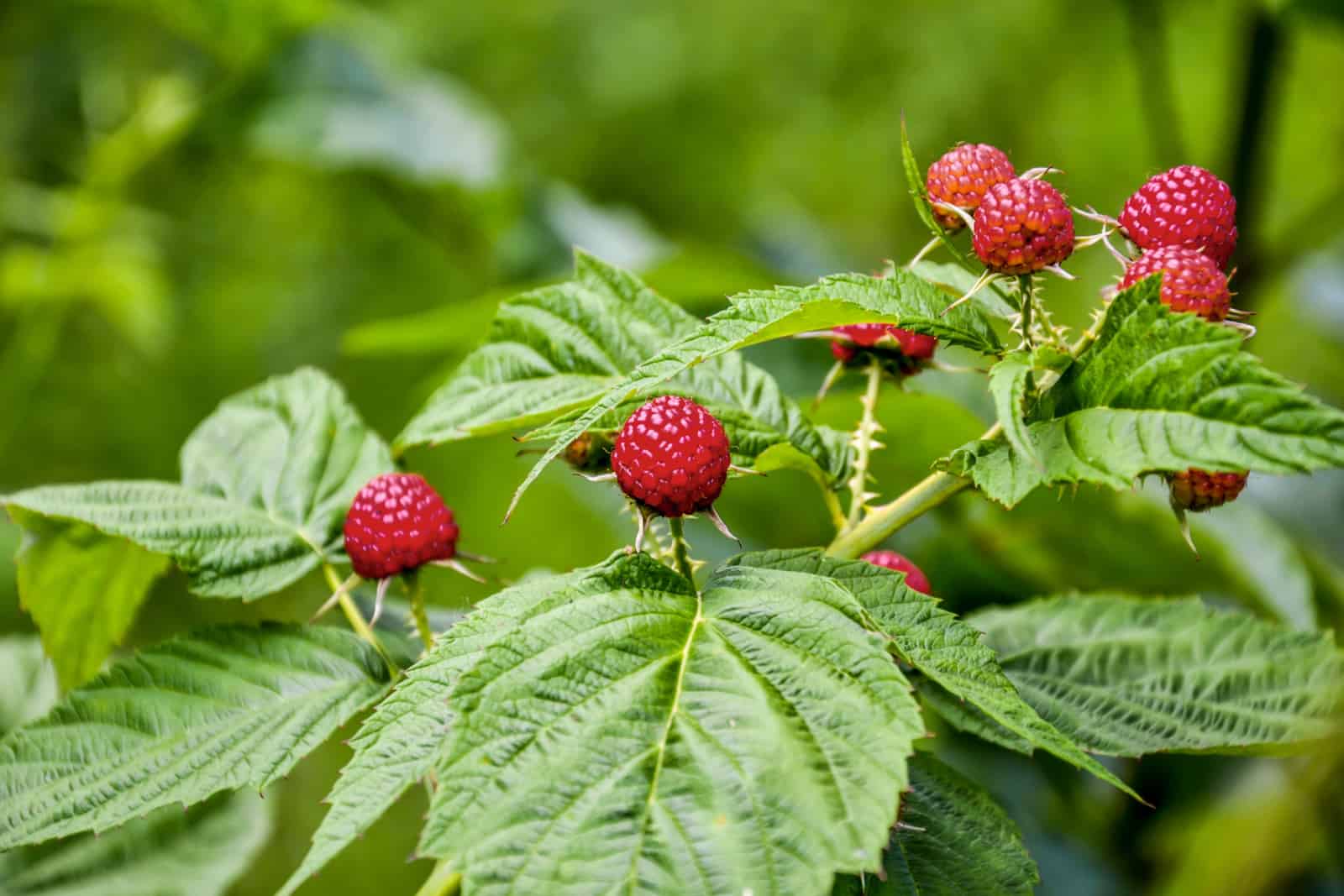
The main benefits of companion planting include attracting beneficial insects, repelling pests, providing shade and ground cover, enriching the growing medium with valuable nutrients, promoting plant growth, and enhancing their taste.
Pest control – Many plants, such as marigolds, nasturtiums, and yarrows, repel pests and attract ladybugs, which can help control infestations.
Inviting pollinators – Companion plants also invite pollinators into your garden, which may increase the yield.
Ground cover – Certain varieties, such as cover crops, squash, and cucumbers, may provide a ground cover for other plants and keep their roots safe.
Enriching the soil with nutrients – Some plants (legumes and comfrey) help with nitrogen fixation and prevent nutrient deficiency from plaguing your garden. Tansy can introduce some potassium into the growing medium.
Enhancing flavor and growth rate – Not all plants can improve the taste and speed up the growth of their companions. Still, herbs such as chamomile, chervil, nasturtiums, and mint are definitely suited for the job.
Final Thoughts
This article presented 15 excellent raspberry companion plants that can improve the growing conditions for this vine.
These companions attract pollinators, repel pests, enrich the soil with nutrients, enhance the growth rate and flavor, and serve as ground cover and mulch.
Of course, not all plants are suitable to grow near raspberries, and some plants you should avoid include nightshades, fennel, strawberries, and similar varieties, such as currants, boysenberries, blackberries, etc.Enjoy the benefits of companion planting, and until next time!
Like this post? Share or pin it for later!
